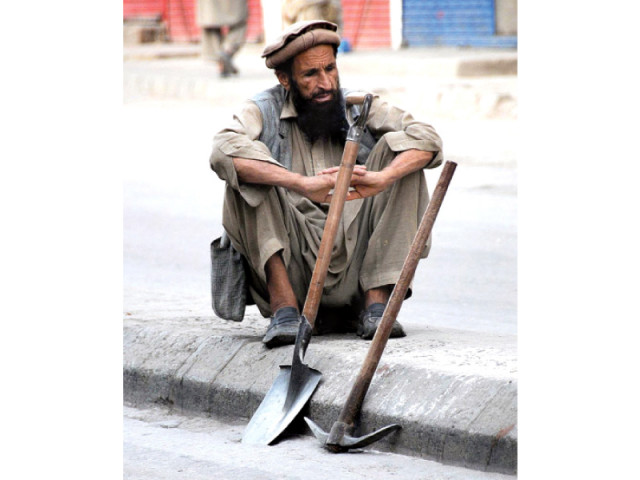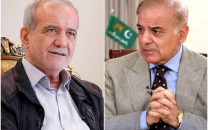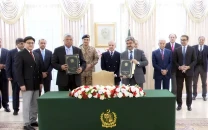Wage-workers continue to grapple with unemployment
Millions still await government aid, the hopes of which were stirred more than a year ago

While all in Muhammad Usman’s family were jubilant about his daughter-in-law’s pregnancy, the daily-wage worker from New Karachi had a mountain of anxieties to conquer before he could embrace the joy of grandfatherhood.
Soon months turned into weeks and weeks into days and as hospital bills now began to seem inevitable, the elderly man and his son found themselves running from pillar to post in hopes of securing enough funds to pay for parturition.
“I used to work as construction labourer and my eldest son was a barber at a small salon. I had to retire due to my health issues some three months ago, and my son has had a hard time being the family’s sole earner under the pandemic-induced restrictions. So when his wife’s delivery date came closer, we were both worried sick about the maternity bills,” Usman recalled. “He couldn’t afford it, I couldn’t help him out and felt terrible to be in that position. It was a hit to our self-respect, but we had to call a friend two days before Eid and ask for an urgent loan,” he added.
Usman and his son are among millions of daily-wage workers who have been left on their beam-ends and neck-deep in debt, during the one-and-a-half year of coronavirus’ crushing impact on business and employment.
“It was last year that my father had to borrow money for my wedding. We thought things would settle down soon and we’ll pay it off. But now we are burdened by another loan, before we could even clear the existing debt,” the new father lamented.
According to an estimate the pandemic has affected around 20 million workers throughout Pakistan. However, being the country’s commercial and business hub, a large number of these affected workers belong to the metropolitan city of Karachi.
According to National Trade Union Federation General Secretary Nasir Mansoor, the pandemic had already affected some 18 million workers affiliated with export and local industries last year. “Beyond that, another 2 million workers who belong to local informal industries like marriage halls, restaurants, transport and tourism have also been left in the lurch,” he shared.
The Sindh government had reserved Rs20 billion for cash disbursement as financial relief to those affected by the pandemic’s restrictions. The fund was part of Rs34 billion in pro-poor social protection programme, the government had earmarked in current financial year.
Usman’s family thought they had been blessed, when a survey team from Sindh Social Protection Programme knocked on the doors of their modest New Karachi home, after first lockdown last year. There was now hope of some kind of aid from the government, which would help the labourer and kin make it through the restriction period.
However, the flicker of hope was soon extinguished when the government went back on its word, and shifted the allocated aid amount to the next financial year.
This year in April, the Sindh Cabinet decided to launch a self-employment scheme by offering interest-free small loans to deserving people of the province. In this regard an amount of Rs2 billion was allocated for utilisation during current financial year.
“The Covid-19 situation underwent a change after around the first quarter of the current fiscal year,” said Special Assistant to the Sindh Chief Minister on Social Protection Haris Gazdar. According to him lockdowns were eased and not really enforced as rigorously as had been expected earlier.
“The government, however, remained committed to creating a provincial social protection system through which significant targeted relief may be provided as needed. So, it was considered that the funds allocated should be conserved and taken forward into the next fiscal year. The decision was aimed at creating a better provincial relief system,” he asserted.
According to Gazdar, official sources privy to the process, however, claimed that the Sindh government had postponed execution on its cash relief programme due to apprehensions of embezzlement. “But the truth is, government authorities were actually not sure about transparent distribution of funds due to past experience of corrupt practices,” he told The Express Tribune.



















COMMENTS
Comments are moderated and generally will be posted if they are on-topic and not abusive.
For more information, please see our Comments FAQ